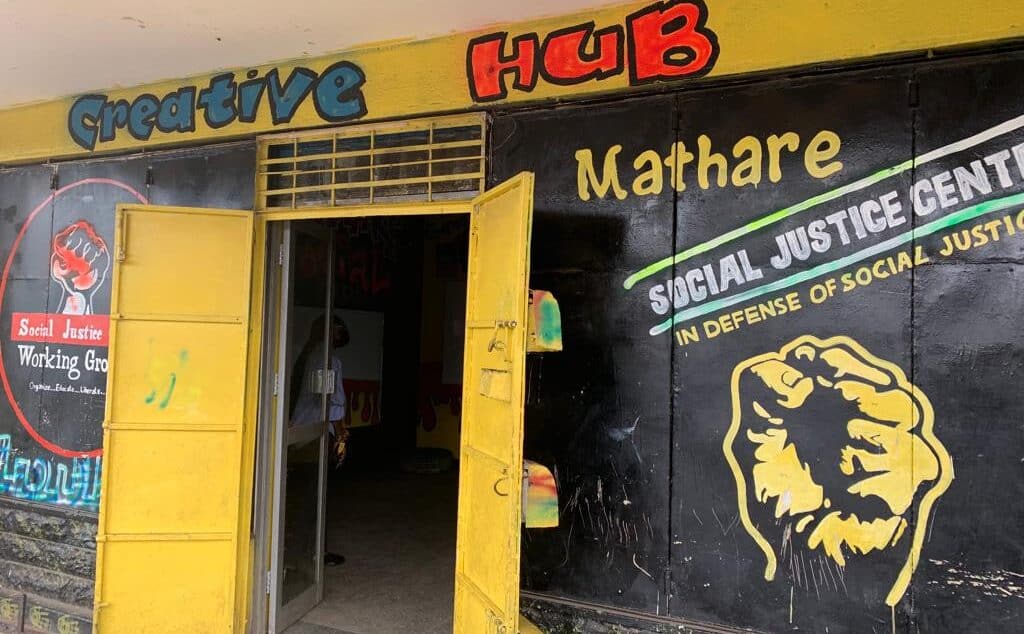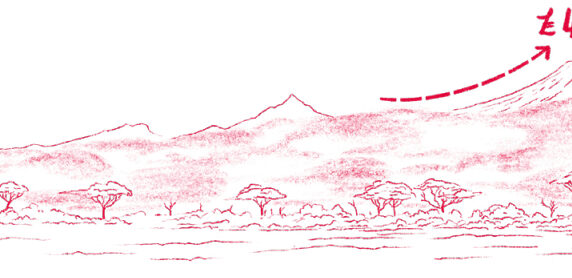On sausages and challenging collaborations with NGOs
This time it was sausages. Unusual, but not unexpected.
We were long used to the demands by larger civil society organisations to prove our legitimacy to collaborate with them on certain initiatives, even those in relation to the grassroots work that we had organised, and that they had chosen to support – gaining them the authenticity and logframe metrics to pursue other funding. But sausages, that would require logistics we were definitely not used to.
Mathare Social Justice Centre (MSJC), where I am the participatory action research coordinator, is a grassroots organisation in Mathare, a poor urban settlement in the Eastlands area of Nairobi, Kenya. We started in 2014 as a collective of activists from this community and me, a mostly boring but committed middle-class researcher not from Mathare, to take on the advocacy issues larger civil society organisations did not.
Real issues, real justice
Our entry point, by necessity, was the rampant police killings of the poor urban youth in Nairobi. But our targets were larger; we wanted to help grow a grassroots network in Mathare that was true to the issues people there were facing every day. We wanted to create a forum that would co-create programmes with all residents to respond to these issues, while grounding social justice work in the community.
Certainly, there were many NGOs in the area, and, for the most part, they supported important interventions. But many of their initiatives were predicated on funding cycles, university degrees and depoliticised narratives to operationalise their work and the ever-changing requirements of their donors. Although civic education or countering violent extremism are campaigns that never seem to lose popularity with Western donors in Kenya!Consequently, the systematic police killings of poor urban youth were not an issue many NGOs wanted to take up, despite these killings being the most sinister articulation of human rights violations – an issue with which many NGOs were concerned.
Unrealistic demands
By virtue of the powerful organising of grassroots activists in justice centres and beyond, both the concerns and solutions put forward by poor urban and rural communities are increasingly being pushed forwards in national campaigns. Collaboration across the grassroots and NGO divide is required, and important.
But, as part of this collective work, grassroots organisations must contend with organisational and sometimes fanciful requests larger human rights organisations make. A few months ago, for us, this was to make sure we served a certain brand of sausages. An NGO representative who was coming to train community members said they needed to eat Farmer’s Choice sausages and not mandazis, a local pastry we customarily eat with tea. For our local caterer, who could count the number of times in her 50 years that she had eaten Farmer’s Choice sausages, this meant travelling out of her neighbourhood to buy the sausages, which added expenses that diminished the tiny margins she was hoping to eke from this catering gig.
While, admittedly, sausages are one of the most bizarre NGO requests we’ve had to contend with, far more common are demands that drown us in paperwork, logistics and unnecessary labour. We are committed to financial transparency, but insisting we get invoices from local service providers who have no access to a computer and limited education is pretty excessive. Similarly, the requests that our members be paid for their services through a bank account rather than through mobile phone transfers, MPESA or cash, which are more accessible, or should bring laptops to a meeting, is pretty out of touch with most people’s realities in Kenya.
Subscribe to our newsletter
Our weekly email newsletter, Network News, is an indispensable weekly digest of the latest updates on funding, jobs, resources, news and learning opportunities in the international development sector.
Get Network NewsUltimately, it is this lack of understanding and commitment to community and place, of which requests for sausages and laptops are symbolic, that can make collaborations between the grassroots and NGOs in Kenya fraught.
Time for change
It’s important to say that not all NGOs are like this. In fact, we have increasingly powerful collaborations with civil society organisations that are horizontal to us. It is also important to mention that not all grassroots organisations have the organisational structures that MSJC is lucky to have, which reduce the financial risk for our supporters. What is more, many of the challenges we experience occur with local representatives from local NGOs, not only with international NGOs.
I am proud that MSJC has the power (and resolve) to raise this issue. Although we ended up providing Farmer’s Choice sausages – it was a brief collaboration and we didn’t want to jeopardise what it could bring, be it information or sustenance – we will continue to interrogate the requests of our NGO partners.
We are committed to effective collaborations that demand and entrench dignity for all Kenyans. But I am not sure if we will be so kind next time as to provide the sausages.
Join us at The Power in Development Conference, where Wangui will speak in the”Who should be telling a community’s story?” session. Book your tickets here.
Category
News & views



